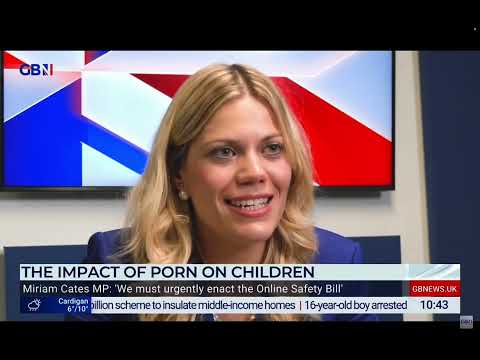
The statistics speak for themselves:
We all know that more needs to be done to protect children and young adults online, and we’ll point you to some of our resources further on that can equip your pupils in light of this too. But today we want to shed some light on some of the ‘good news’ when it comes to tackling harmful online content.
What is being done nationally?
MP Miriam Cates is taking a stance against the tech giants whose sites unlawfully allow children access to damaging content, including that which concerns pornography, suicide, and self-harm. She is calling for accountability and criminal liability to land on the heads of directors and senior managers of these corporations by way of an amendment to the Online Safety Bill which could lead to up to two year prison sentences if ‘…proved that a breach of the child safety duties has been committed with the consent, connivance or neglect of a senior manager or director.’
This passionate article, demanding more from our Government to protect our young people, sees Miriam calling out the tendency towards backing wealthy corporations over child safety as a serious act of injustice:
You can hear more from Miriam in her interview speaking on the harms of pornography to children below.

Miriam Cates MP - Online Safety Bill
Play VideoWhat is happening in the media?
Many of us are also aware of the threateningly strong hold social media influencers have on young people. Messages encouraging toxic masculinity, abuse, sexual exploitation and other extreme behaviours have come to the forefront through the controversial online personality Andrew Tate.
However, recently Andrew Tate received his comeuppance as a Twitter feud with climate change activist Greta Thunberg inadvertently revealed his location and led to his arrest.
These stories show some good in tackling the dark and disturbing realities of life online. Yet these dangers of access to online pornography and encouragement of violent and misogynistic behaviours still pose a very real threat.
What can you do?
Ten Ten’s vision for young people would see them informed and empowered to keep themselves safe online, by building young people’s understanding of the dignity of ourselves, as well as how to protect and look after our bodies, and respect other people and their bodies.
Our Year 9 session, titled ‘One Hundred Percent’, highlights the vast choice available to us online. Through choices in what we share and who we are friends with or follow, children will gain awareness of the impact this can have on them and what they’re giving their consent to.
The lesson emphasises the importance of considering the full worth and dignity of another person and that real consent is about respecting freedom.

Session 1: Understanding Consent
This session invites students to explore the complexities surrounding consent, including sexual consent. Students will hear several real-life stories where consent has not been given and explore the different factors involved in giving and receiving consent.
Go to SessionHowever, the theme of consent (both off and online) is present in both the Life to the Full primary and secondary programmes, from EYFS through to Year 11. You can read previous Hub articles for both Primary and Secondary to see a list of other useful resources which will aid you in educating children and young people about keeping safe.

Keeping Children Safe in Education
Many of our colleagues in primary schools have been keen to know …
Go to Content
Keeping Children Safe in Education – Secondary Schools
In January we shared an article for primary schools on ‘Keeping Children Safe in Education’. We’ve since had requests for an article for our secondary school colleagues, so here it is…
Go to ContentIn addition, the PSHE Association has also responded to the breadth of risks posed by discriminatory behaviours and attitudes presented online, by producing a useful guidance document which you can find on their page.


